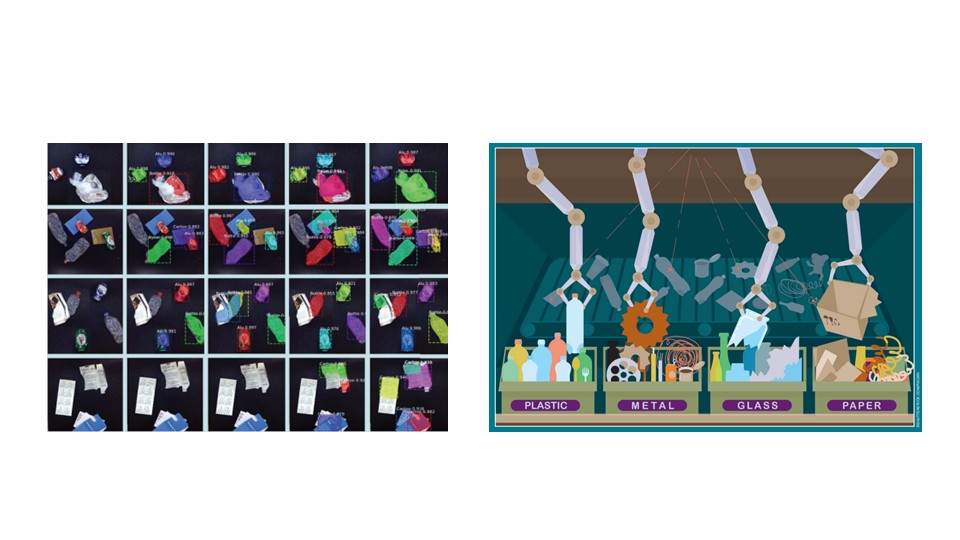Real-Time Semantic Segmentation on a Budget
Building Smart Waste Sorting with Lightweight AI

Technologies & Methods Used
- Frameworks: Python, PyTorch
- Models: ICNet, BiSeNet, ENet
- Dataset: Custom-labeled waste images (metal, plastic, paper, etc.)
- Approach: Deep learning with a focus on fast, efficient segmentation for embedded systems
As part of a deep learning project at Politecnico di Torino, we tackled a practical challenge: designing a computer vision system that could identify different types of waste in images—and run efficiently on devices with limited computational power.
To solve this, we focused on semantic segmentation, a task that assigns a class label to every pixel in an image. Our use case? Smart waste sorting systems that need to operate in real time, possibly on edge devices like Raspberry Pi or other embedded hardware.
We evaluated three resource-efficient models tailored for speed and deployment feasibility:
- ICNet: Known for maintaining high accuracy while drastically reducing computational cost using multi-resolution branches.
- BiSeNet: A fast, two-path architecture that balances spatial detail and contextual information.
- ENet: One of the earliest models optimized for speed, with a highly compressed architecture.
Our dataset consisted of manually annotated waste images categorized into six classes. After extensive training and evaluation, we found that while ICNet offered a strong balance between accuracy and speed, ENet led in raw speed with a lower accuracy trade-off. BiSeNet provided a well-rounded performance and was especially promising for real-time applications with minimal latency.
This project gave us hands-on experience working with real-time semantic segmentation, optimizing models for deployment in constrained environments, and understanding how to balance model size, speed, and accuracy—a core concern for production-grade AI systems.
Smart waste management is a growing need in both urban infrastructure and industrial automation, and our work showed that even with limited resources, it’s possible to build capable and responsive AI solutions.
https://github.com/masoud-khalilian/mldl-waste

